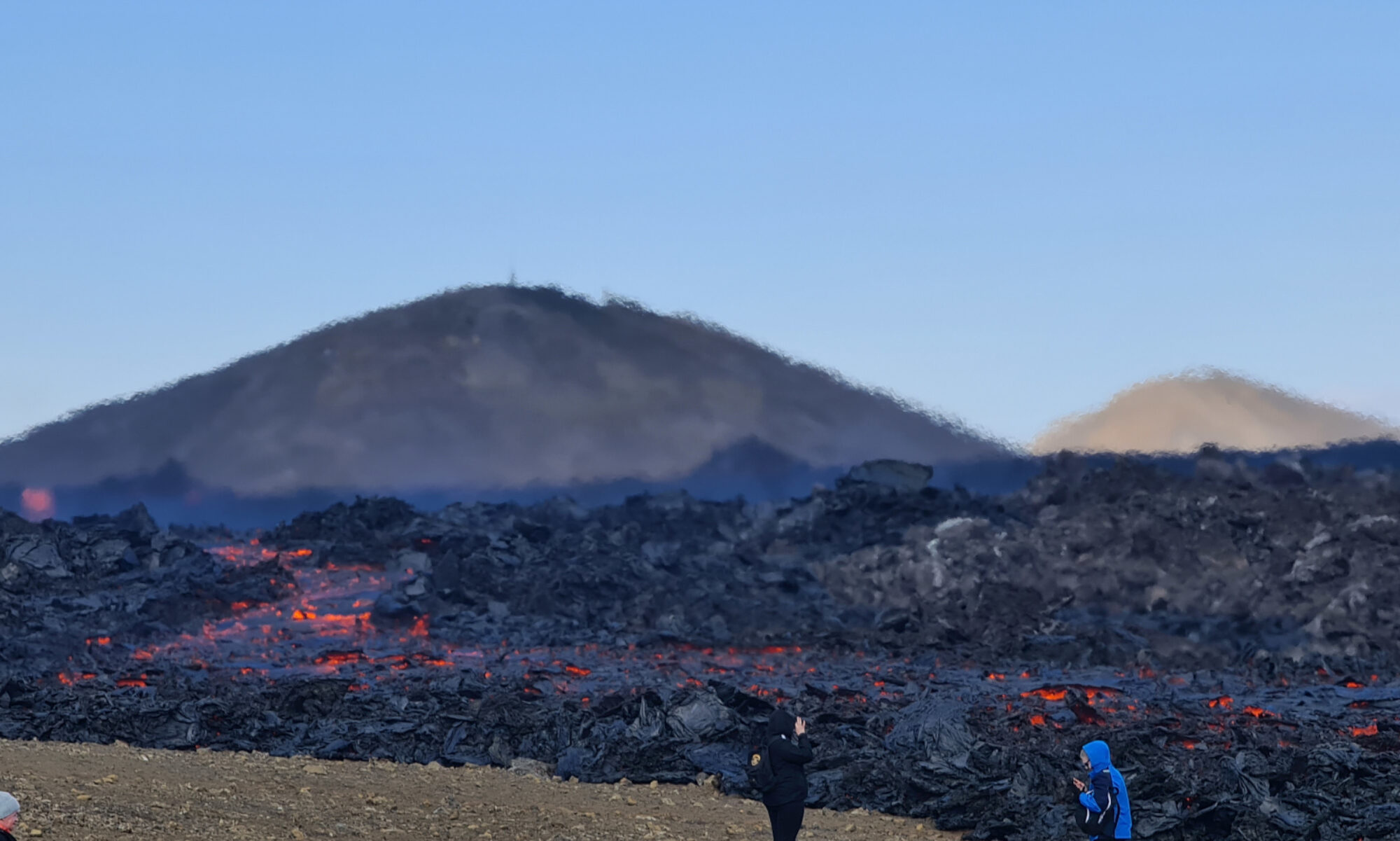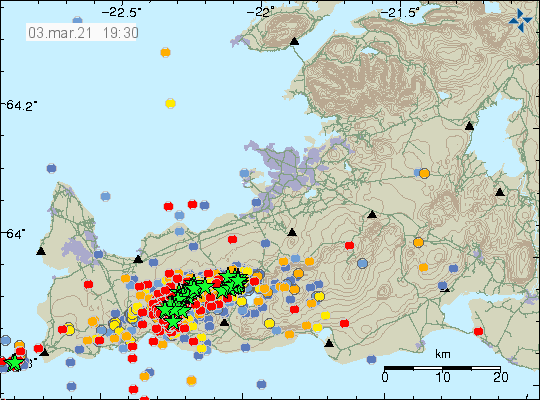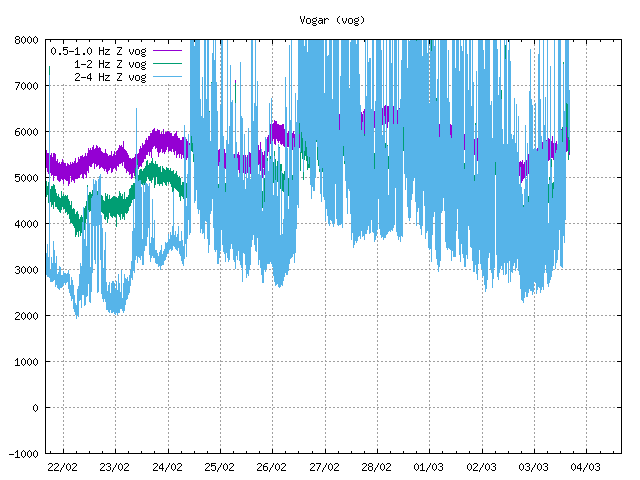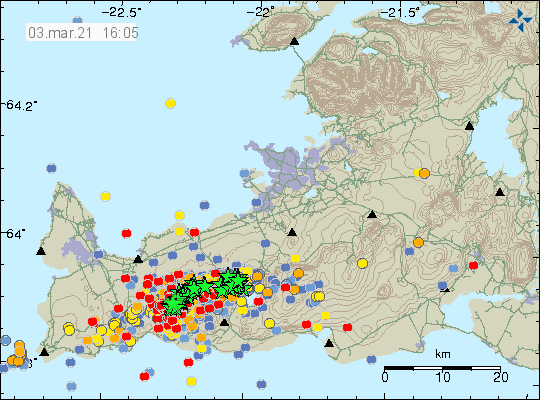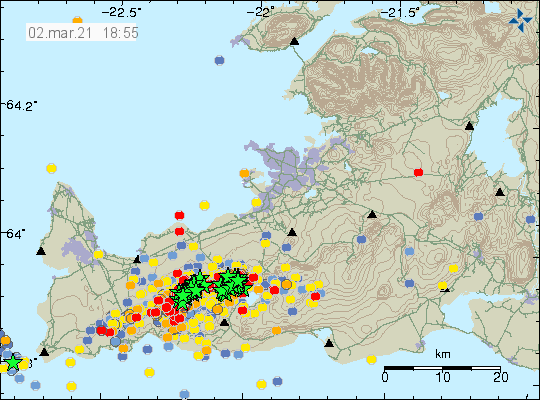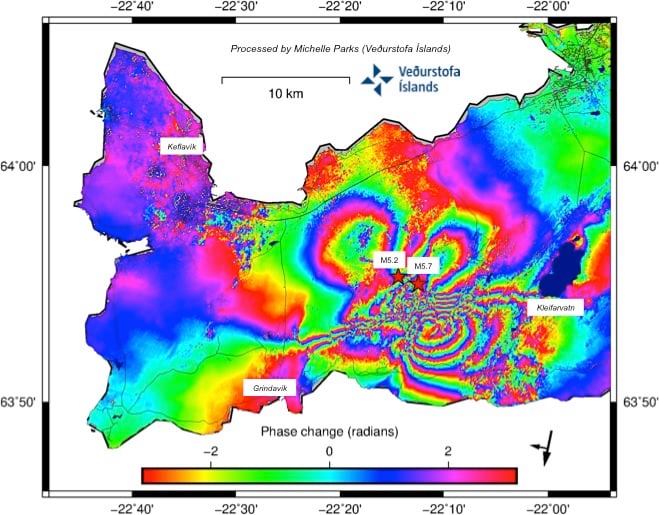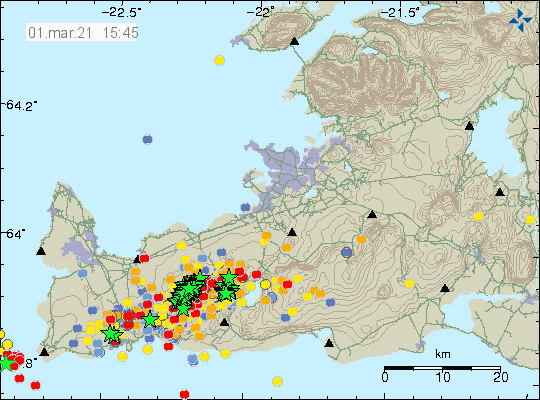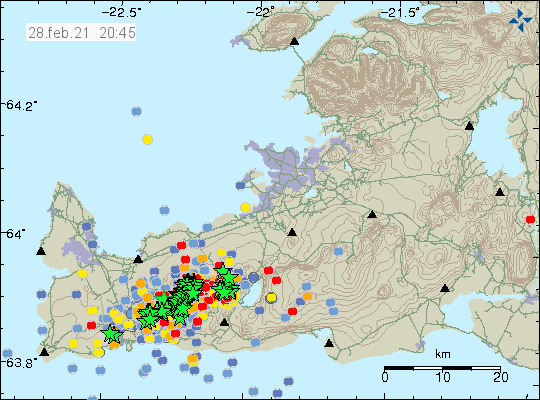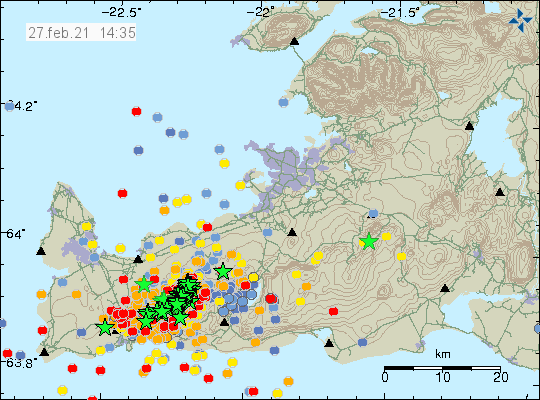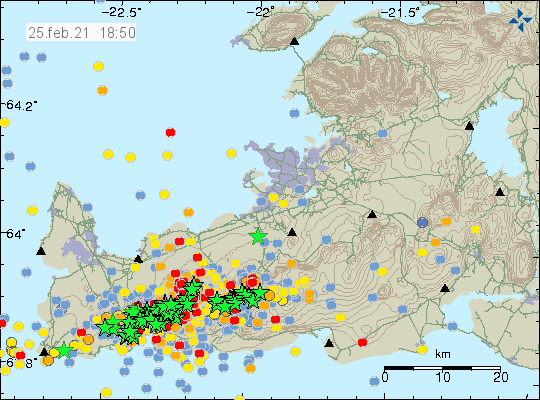This is a short update on what is going on in Reykjanes peninsula. This article is written at 16:29 UTC.
Volcanoes in this article
Fagradalsfjall
Reykjanes
Krýsuvík
- Fagradalsfjall volcano has not erupted since Pleistocene. When last eruption took place is not listed or not known. This the first magma movement in Fagradalsfjall volcano in 11700 years.
- Eruption risk is now in Reykjanes volcano*.
- *This might also be a different volcano known as Svartsengi (no Global Volcanism Profile). There is no agreements between maps on this detail for now. Reykjanes volcano might only extend into Reykjanestá and then is mostly under ocean and might not extend into Reykjanes peninsula as sometimes is shown on maps.
- Krýsuvík volcano has quieted down a little in the last 24 hours. Eruption risk is lower for now in that volcano.
- Largest number of earthquakes detected in one day was over 3000 earthquakes.
- In the last 24 hours 12 earthquakes with magnitude above Mw3,0 have happened. Most of them are felt in nearby populated areas.
- No harmonic tremor has been detected since it ended during the night on 4-March-2021.
- During the last 48 hours over 3300 earthquakes have been recorded by Icelandic Met Office.
- New! Magma is now estimated to be at 5 to 6 km depth but might be as shallow as 2 km depth.
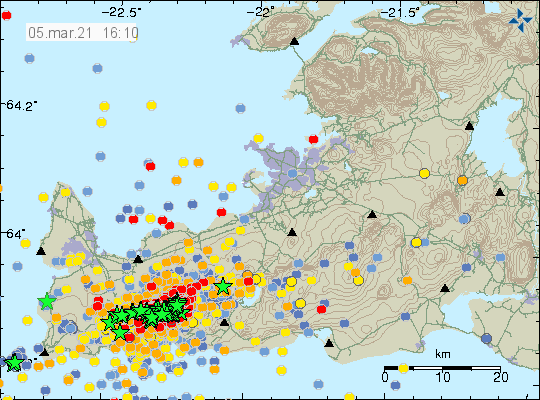
Maps of possible eruption areas has been made by Earth science department of University of Iceland and can be found here. University of Iceland Earth science department also made a lava flow prediction can that map can be found here. Both maps are updated daily on Facebook.
Web cameras
Beint vefstreymi af skjálftasvæðinu – Vogastapi (Rúv.is)
Keilir í beinni (mbl.is)
Óróasvæðið í beinni útsendingu (Vísir.is)
Live from Iceland
Keilir og skjálftasvæðið (YouTube)
Added at 21:12 UTC
Road camera 1
Road camera 2 (night vision/infrared)
Cameras and links might go offline without warning.
Donations
It is possible to support my work with donations. It helps me in current financial situation that has remained rather bad. You should only donate if you can. Other ways to support my website is to let people know about it if they are interested in earthquakes, volcanoes and geology in Iceland. Thanks for the support. 🙂
Article updated at 16:53 UTC.
Article updated at 21:13 UTC.
